Wisconsin GOP Chair Brian Schimming hasn’t been indicted or accused of criminal wrongdoing, but you wouldn’t know it from the biased state media.
The Milwaukee Journal Sentinel, Wisconsin’s largest daily newspaper, falsely reported that Wisconsin’s GOP Chairman Brian Schimming was indicted, one of the biggest media errors in recent state history.
Schimming was not indicted. Furthermore, he has not been accused of criminal wrongdoing by any prosecutor despite two massive probes, including the racketeering indictment in Georgia that charged former President Donald Trump and 18 other conservatives.
The Journal Sentinel’s falsehood was just the worst of the batch. Other news sites, from Channel 58 to the Wisconsin Law Journal, slanted their stories in a way that was very unfair to Schimming.
Fulton County, Georgia, DA Fani Willis’s indictment does mention Schimming twice, but it does not accuse him of any criminal wrongdoing (people get mentioned in indictments and criminal complaints all of the time because prosecutors are laying out facts. That doesn’t mean they’ve done anything wrong.)
According to testimony given by former Wisconsin GOP state Chairman Andrew Hitt to U.S. Congress, Schimming was brought on to provide communications and public relations advice to James Troupis, a respected Wisconsin elections lawyer who was working on the Wisconsin recount for Trump. As with Schimming, Troupis has not been indicted or accused of criminal wrongdoing.
The indictment also misleadingly refers to Schimming as the Wisconsin GOP chairman even though, at the time of the meeting described in the indictment, he was not chairman, a position he assumed in late 2022.
Here’s a round-up of some of the unfair coverage of Brian Schimming:
The Milwaukee Journal Sentinel’s Whopping Error
A photo cutline in the Milwaukee Journal Sentinel read, “The Georgia grand jury indicted 2024 presidential candidate Donald Trump and several allies, including Wisconsin chairman Brian Schimming.”
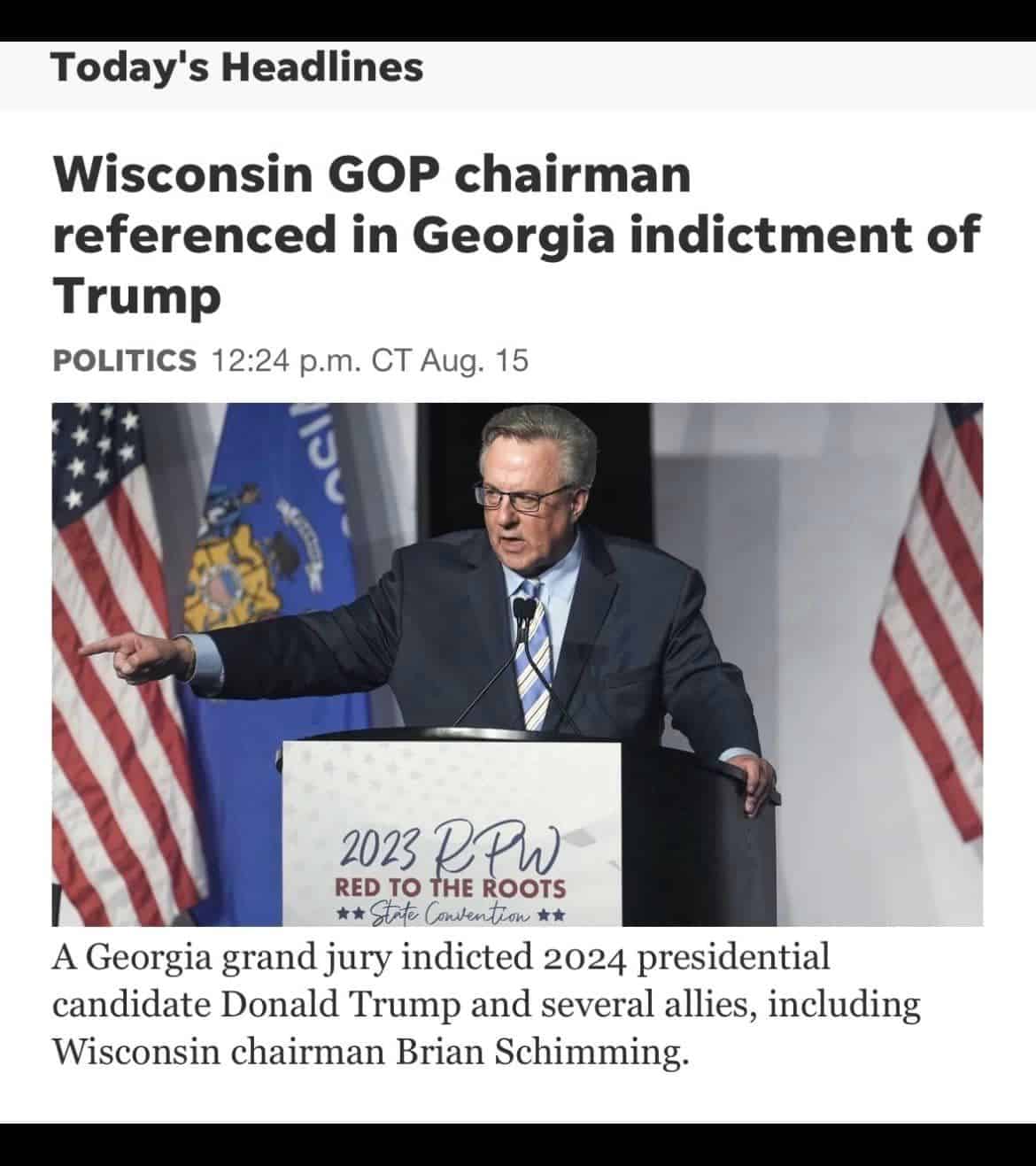
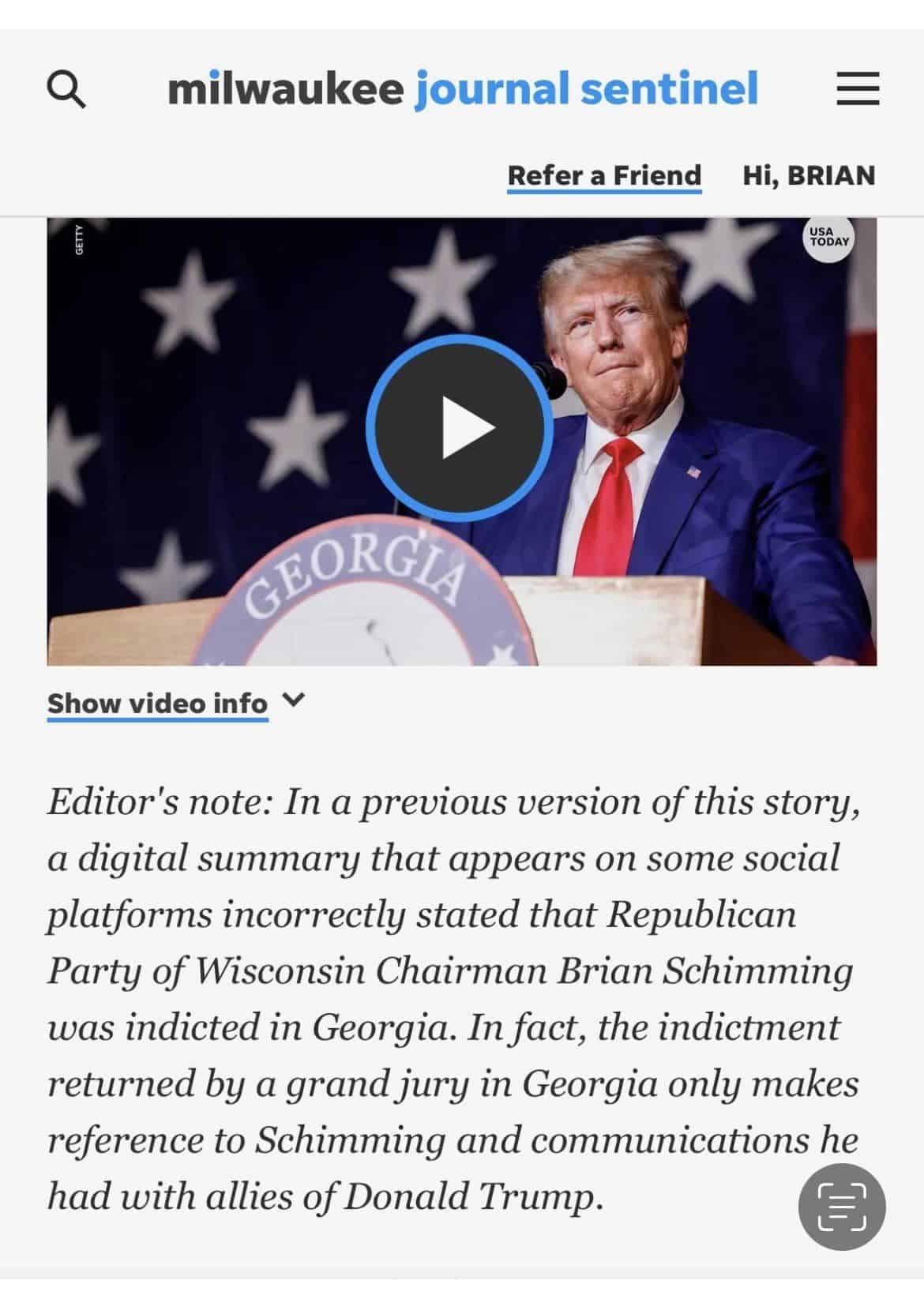
Again, this is categorically false. Schimming was not indicted or accused of any criminal wrongdoing.
That’s quite an error!
The Journal Sentinel later tacked a correction toward the end of the story. It reads, “Editor’s note: In a previous version of this story, a digital summary created by editors that appears on some social platforms incorrectly stated that Schimming was indicted in Georgia. In fact, the indictment returned by a grand jury in Georgia only makes reference to Schimming and communications he had with allies of Donald Trump.”
It’s not clear who made the error. The Journal Sentinel story was written by reporters Molly Beck and Tyler Katzenberger, but reporters often do not write photo cutlines and, as noted, the correction says “editors” made the mistake.
Wisconsin Law Journal’s Steve Schuster
The Wisconsin Law Journal’s Steve Schuster is at it again, this time writing an unfair story about Brian Schimming.
Schuster wrote: “Two Wisconsinites including Brian Schimming, chairman of the Republican Party of Wisconsin, have been called out for their alleged role in organizing fraudulent electors in Wisconsin during the 2020 Presidential Election.”
However, the indictment does not accuse Schimming of organizing fraudulent electors, nor has any other authority accused him of such. Schimming is not an attorney, and he wasn’t part of the attorney’s circle crafting Trump’s legal strategies. As noted, he was a public relations advisor and, according to Hitt’s testimony, was involved in crafting a state GOP statement given to the public and media.
Furthermore, Schuster’s “have been called out” language is sneaky; it uses passive voice to make it sound like Schimming has done something wrong but without having to say who is doing the calling out. In fact, the only people calling out Schimming are Democratic partisans, including on social media. Schuster should clarify this point to tell readers that important context.
Schuster’s story then says, unbelievably: “The 19 individuals are now formally accused of unlawfully changing the outcome of the 2020 election.”
What? No one has been accused of “CHANGING” the outcome of the election. Schuster also fails to tell readers that Schimming was not one of the 19. A casual reader might think otherwise, since the other person Schuster mentions alongside Schimming, lawyer Ken Chesebro, WAS indicted.
Schuster then writes, “One of the charges the former president is facing reads right out of a movie script for the Dixie Mafia.” The Dixie Mafia, really? The “overt acts” in the Willis indictment include Trump’s tweets and a court filing by his lawyers.
As The Crime Wire explains, “The Dixie Mafia was a network of gangsters, kingpins, and killers that exerted influence across the Southern United States in the 1960s, brazenly committing crimes under the blind eye of a corrupt justice system.” Sorry, but we don’t see the analogy.
Maybe Schuster just wrote hastily. After all, at another point in the story, he referred to the “The Maimi Hearld.”
 Maybe the Wisconsin Law Journal needs to hire an editor… oh wait, Schuster IS the editor.
Maybe the Wisconsin Law Journal needs to hire an editor… oh wait, Schuster IS the editor.
CBS-58’s Emilee Fannon
CBS-58’s Emilee Fannon also worded her story on Brian Schimming in a way that was very misleading to readers. It says at the top:
“The chairman of the Wisconsin Republican Party is named in the latest indictment charging former President Donald Trump and 18 others in Georgia for their alleged roles in trying to block certification of the 2020 election.
The indictment lays out examples of Trump’s co-conspirators organizing a plan to have fake Republican electors submit alternative slates in seven states Trump lost, including Wisconsin.”
Fannon’s “is named in the indictment” language might make people think Schimming was charged. Fannon had an obligation to explicitly tell readers, high up in the story, that he was not charged. The next paragraph, coming in the order it does, implies that Schimming is a “co-conspirator” of Trump, which is legal language that has not been applied to Schimming by any prosecutor or authority.
Critically, despite this loaded language, Fannon NEVER TELLS READERS THAT SCHIMMING WAS NOT INDICTED.
Her article also contains this line, “Mordecai Lee, Professor Emeritus at UW-Milwaukee, said the latest indictment is another example detailing how secretive the effort was in Wisconsin.” Fannon should have informed readers, in a story on this political topic, that Lee is a former Democratic state legislator. She does not.
She then fails to tell readers that, far from secretive, the alternate elector effort in Wisconsin was 1) mentioned in a court filing and 2) revealed to the public and media via a statement posted that same day to the state GOP’s website:
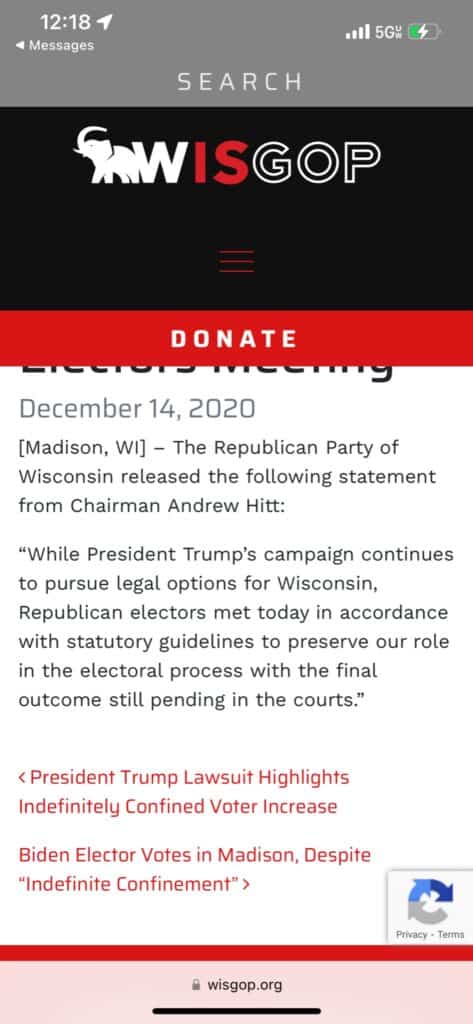
It read,
“While President Trump’s campaign continues to pursue legal options for Wisconsin, Republican electors met today in accordance with statutory guidelines to preserve our role in the electoral process with the final outcome still pending in the courts.”
Doesn’t seem very secretive to us. Sloppy work by Fannon.
WTMJ-TV’s Megan Lee
In its story, by Megan Lee, WTMJ-TV writes, “The 98-page Georgia election indictment charges former President Donald Trump with racketeering, violating oath of office, and other charges. Many familiar names were charged and mentioned throughout the document, including a well-known Wisconsinite, Brian Schimming.”
By mentioning only Schimming after the phrase “charged and mentioned,” the story implies Schimming might have been charged. Minimally, it does not make it clear to readers that he was the person merely “mentioned.”
You don’t find out until the 11th paragraph that Schimming was NOT charged; many readers might not make it that far.
What the Indictment Says
So what does the indictment actually say about Schimming? The indictment says:
“On or about the 10th day of December 2020, KENNETH JOHN CHESEBRO sent an e-mail to Republican Party of Wisconsin Chairman Brian Schimming with proposed language for documents to be used by Trump presidential elector nominees in Wisconsin for the purpose of casting electoral votes for DONALD JOHN TRUMP on December 14, 2020, despite the fact that DONALD JOHN TRUMP lost the November 3, 2020, presidential election in Wisconsin. This was an overt act in furtherance of the conspiracy.”
However, this passage is used to accuse CHESEBRO and the other indicted people, not Schimming, of criminal wrongdoing.
The indictment also says:
“On or about the 12th day of December 2020, KENNETH JOHN CHESEBRO met with Brian Schimming and discussed the December 14, 2020, meeting of Trump presidential elector nominees in Wisconsin. RUDOLPH WILLIAM LOUIS GIULIANI joined the meeting by telephone and stated that the media should not be notified of the December 14, 2020, meeting of Trump presidential elector nominees in Wisconsin. These were overt acts in furtherance of the conspiracy.”
However, this passage is used to accuse Chesebro, Giuliani, and the other indicted people – not Schimming – of criminal wrongdoing. It should also be noted that the Wisconsin GOP chose to, in fact, notify the media on December 14, posting a public statement on its website.
Furthermore, as noted, the indictment itself is very misleading by referring to Schimming as the Republican Party of Wisconsin Chairman, when he did not assume that role for two more years.
The Trump electors thought they were casting votes to preserve Trump’s right IN CASE he won in court because he was appealing Wisconsin litigation to the conservative-controlled U.S. Supreme Court, according to previous testimony by then GOP Chairman Andrew Hitt. In other words, they were not trying to subvert the Democratic process but, rather, following the advice of attorneys, thought they were preserving Trump’s legal right IN CASE he prevailed in court.
“Republican electors met in accordance with state statutory guidelines, on the advice of attorneys, and with precedent, to preserve all legal options still pending before the courts,” Schimming said in a statement. “Had the courts ruled differently, the alternate electors would have been needed.”
Hitt’s deposition says that Wisconsin attorney for Trump, Jim Troupis, a lawyer, had put a footnote in a court filing making it known that the “Wisconsin electors were going to meet as an alternative slate and send their documents on.”
Hitt and state GOP Executive Director Mark Jefferson “wanted it to be known why we were doing this.”
Hitt added, “I wanted it to be known so that people would know we were doing this alternative slate of electors that, in case that, you know, the cases were successful, that we had met and that we wouldn’t have waived the argument for, you know, ruling in the Trump campaign’s favor or for those votes counting.”
Hitt said he believed Jefferson sent the statement to Schimming “who was sort of doing communications work with Mr. Troupis.”
The statement said, “As the legal proceedings continue to work their way through the Wisconsin court system, I have advised the Republican party of Wisconsin to convene a separate Republican electors’ meeting and vote at the Wisconsin State Capitol on December 14.” That was proposed.
The next line said, “Of course, there is precedent for such a meeting. Democrats convened in Hawaii in 1960. Given this and the legal arguments that have yet to be decided, the GOP electors shall also meet on Monday while we await a final resolution in Wisconsin.”
The statement was canceled because of the phone conference call with Giuliani, where Giuliani said no press.
Schimming sent a message to Jefferson saying Giuliani did not want any press.
Jefferson wrote, “Schimming is wanting me to talk with Ken Chesebro, who is sitting in their office. Any interest in being on the call? Re: Electors meeting. And whatever else. I don’t think there is any particular concern, but it’s still on no matter what it appears.
The Wisconsin GOP put out a statement to the press despite Giuliani’s request.
Schimming was brought on “to work on communications type stuff and public affairs type issues for Mr. Troupis during the recount,” Hitt said in the testimony. In other words, he was a PR guy.
Troupis “is probably the preeminent guy in Wisconsin on election law and recounts, and you know he’s very well respected,” he noted.
Table of Contents
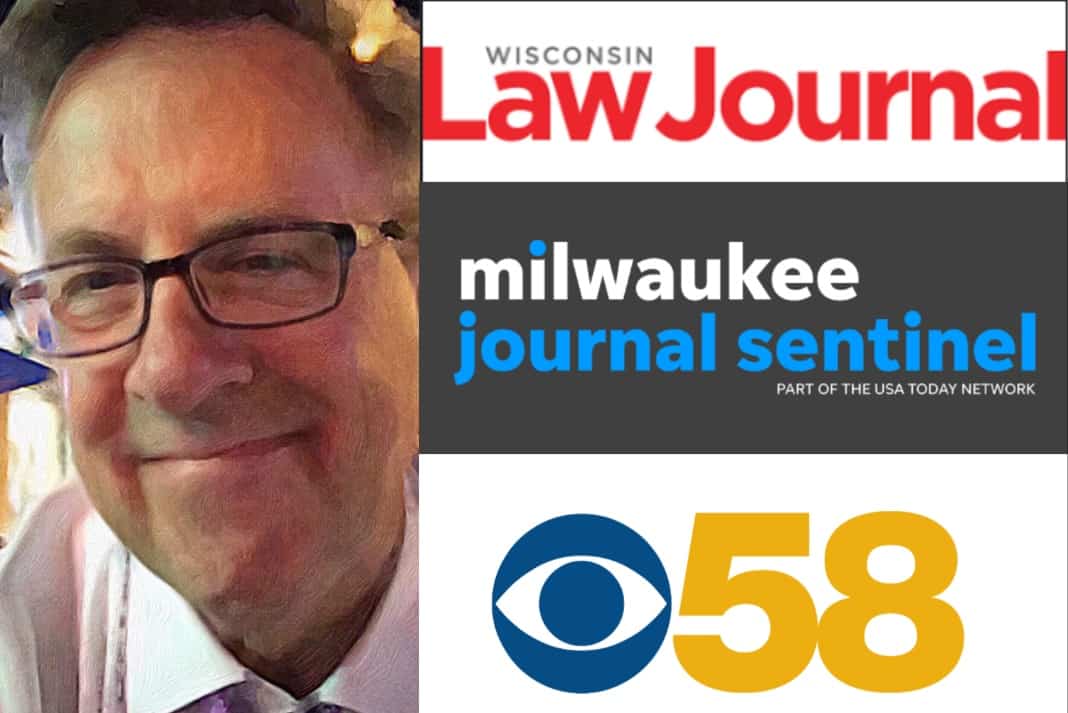
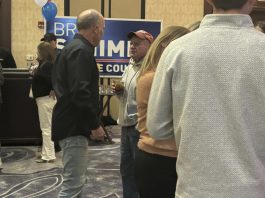

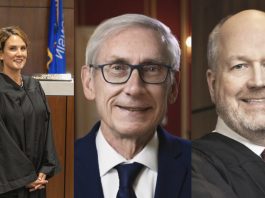


![WATCH: Elon Musk Town Hall Rally in Green Bay [FULL Video]](https://www.wisconsinrightnow.com/wp-content/uploads/2022/04/Elon_Musk_3018710552-265x198.jpg)

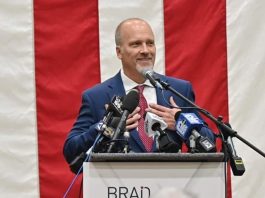

![The Great American Company [Up Against the Wall]](https://www.wisconsinrightnow.com/wp-content/uploads/2025/03/MixCollage-29-Mar-2025-09-08-PM-4504-265x198.jpg)
![The Wisconsin DOJ’s ‘Unlawful’ Lawman [WRN Voices] josh kaul](https://www.wisconsinrightnow.com/wp-content/uploads/2025/03/MixCollage-29-Mar-2025-08-48-PM-2468-265x198.jpg)
